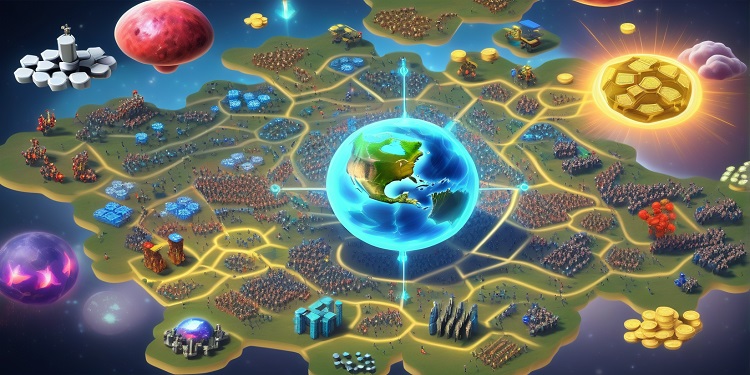GAIMIN, a decentralized platform tailored for gamers and game creators, has officially introduced its next-generation file-sharing system through the GAIMIN Game Developer Portal. This newly launched service targets Web3 studios by offering an efficient and scalable method for storing and distributing game files of any format or size. The platform utilizes the untapped storage and bandwidth of thousands of gaming PCs across the globe to deliver a solution that is not only fast and flexible but also cost-effective.
By enabling game developers to upload and share large files such as patches, game builds, and digital assets without format restrictions, GAIMIN’s system removes the constraints typically encountered with traditional cloud services. Developers now gain the ability to manage their digital distribution with significantly reduced limitations, supporting a broader spectrum of file types and workloads.
Decentralized Tech with Real-World Advantages
What distinguishes GAIMIN’s offering is its innovative use of decentralized architecture. Instead of relying on centralized cloud infrastructure, the platform distributes files across its network of gamer-owned PCs. When an end user downloads a file, it is retrieved from the node closest to them geographically, resulting in notably enhanced performance. The company has indicated that this system can provide up to 30% faster download speeds and as much as 70% lower costs compared to conventional cloud platforms, all without compromising reliability or service quality.
GAIMIN has made the service immediately accessible through its developer portal, and to encourage adoption, the company is offering a one-month free trial for early users. The solution marks a foundational element in GAIMIN’s broader strategy to support Web3 game development at every stage—from launch to scaling—by integrating tools for publishing, monetization, and distribution.
Empowering Gamers to Power the Games They Play
The company’s vision hinges on the principle of allowing gamers to contribute directly to the infrastructure that supports the development of the games they enjoy. The file-sharing system represents just one piece of a growing toolkit designed to streamline the production and deployment of Web3 games. With SDKs, APIs, and publishing resources already available, GAIMIN aims to simplify the developer experience while lowering operational costs.
Leadership at GAIMIN has emphasized that their infrastructure is not merely a means of accelerating file transfers, but a complete ecosystem built by and for the gaming community. The platform has already attracted a number of partner studios and independent developers who are actively utilizing its tools to build and release games.
Part of a Broader Decentralized Infrastructure Movement
The file-sharing capability functions as part of GAIMIN’s broader DePIN (Decentralized Physical Infrastructure Network) stack. This stack harnesses distributed computing, storage, and bandwidth to support real-world applications across the Web3 space. As the community of users continues to grow and upgrade their hardware, the infrastructure expands in parallel, creating a continuously evolving and self-sustaining system.
The company has positioned its tools as a solution to one of the biggest challenges in the industry—balancing technical demands with rising costs. With centralized platforms often burdening developers with high fees and limited scalability, GAIMIN presents a decentralized alternative that promises both affordability and performance.
Scaling Web3 Games with Speed and Efficiency
GAIMIN is currently inviting studios and developers to explore the new file-sharing service, which can be accessed via its official Game Developer Portal. Custom support is also available for those seeking a more tailored implementation.
As the Web3 gaming industry continues to grow in complexity and ambition, GAIMIN’s infrastructure solution offers a critical layer of support. By cutting costs and boosting performance, the platform enables developers to move from concept to community faster than traditional systems allow, helping shape the future of decentralized gaming.



